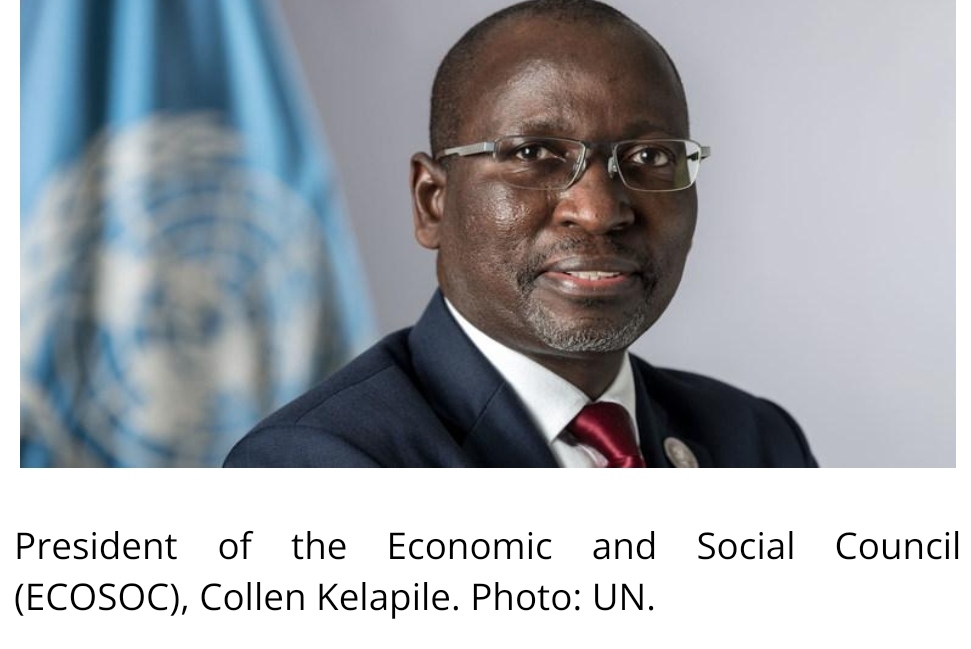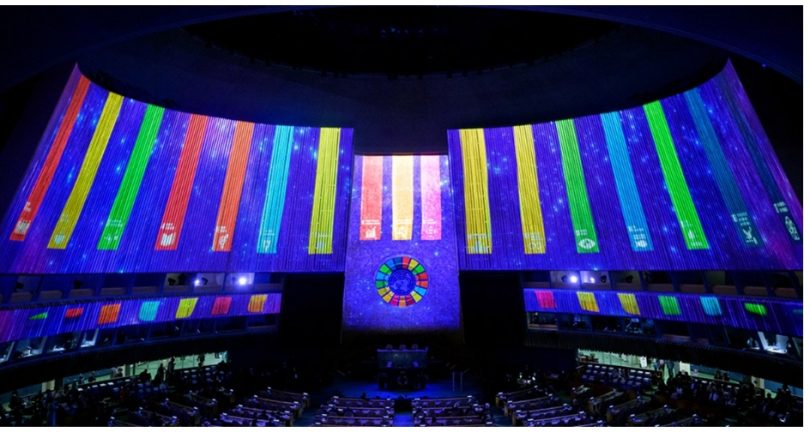The United Nations 2023 High-Level Political Forum on Sustainable Development, resumed this week and talked about action and strengthened national plans key to achieving global goals by 2030.
With one-third of the Sustainable Development Goals (SDGs) showing stagnation or regression, urgent high-level political action and reinforced national plans are essential for achieving the 2030 Agenda. This message was conveyed by senior United Nations officials during the opening of the high-level segment of the Economic and Social Council and the ministerial segment of the high-level political forum on sustainable development.
The forum’s theme, “Accelerating the recovery from COVID-19 and implementing the 2030 Agenda at all levels,” aims to address policy shifts and transformations required to counter the multiple crises that threaten decades of global development progress. It particularly focuses on SDGs 6 (clean water and sanitation), 7 (affordable and clean energy), 9 (industry, innovation, and infrastructure), 11 (sustainable cities and communities), and 17 (partnerships for the Goals) and their interconnectedness with other Goals.
United Nations Secretary-General António Guterres emphasized the urgency of high-level political action, urging all governments to present clear plans and commitments to strengthen their action in their respective countries during the upcoming SDG Summit on September. He highlighted the alarming state of affairs, with almost 600 million people still trapped in extreme poverty by 2030, escalating greenhouse-gas emissions, resurgent hunger, and gender equality remaining 300 years away. To address these challenges, accelerated action, increased investment in sustainable development, and climate action are essential.
The President of the General Assembly, Csaba Kőrösi, stressed the need for transitioning from outdated policies and institutions to achieve sustainable development. The transformation would require substantial financial resources, with a funding gap currently estimated at $4.2 trillion annually. Despite the significant investment, the benefits of such changes would far outweigh the costs. He called on financing experts to quantify the advantages of sustainability transformation.
Local action was highlighted as a critical element by Economic and Social Council President Lachezera Stoeva. Aligning national priorities with the SDGs is crucial for coherent and effective sustainable development. She encouraged local governments and communities to take ownership and emphasized the potential for significant progress in the remaining seven years to 2030.

During the forum, youth representatives Asma Rouabhia and Jevanic Henry emphasized the importance of empowering youth and involving them in policy decisions. They urged young people to be an integral part of governments, private sectors, and development partners, rather than mere observers.
The forum also featured a “fireside chat” with scientists who authored the Global Sustainable Development Report 2023. They emphasized the need for cooperation, innovation, and inclusive decision-making across sectors to drive sustainable change.
Regional Cooperation and Game-Changing Initiatives: Paving the Way for Sustainable Development
Regional cooperation and transformative initiatives play a pivotal role in building resilience against future shocks and achieving the 2030 Agenda for Sustainable Development. Despite efforts towards realizing the 2030 Agenda, progress remains off track across all regions due to the poly-crisis affecting many countries. To overcome these challenges, several key areas of transformative action were identified by the speakers.
- Investing in Social Protection, Gender Equality, and Disaster Resilience
Building resilience requires investments in social protection, gender equality, and disaster resilience. Empowering vulnerable populations and ensuring access to social services are crucial steps to achieve the Sustainable Development Goals (SDGs). Additionally, addressing climate change and making food and energy systems resilient and sustainable are essential components of a sustainable transformation.
- Strengthening National Statistical Systems and Data Sharing
To drive progress, enhanced national statistical systems are necessary for accessing disaggregated data. Policies must be based on solid data obtained through open-source data, national and regional data exchange, satellite imaging, and big data. This will enable effective decision-making and lead to more targeted and impactful interventions.
- Collaboration and Partnerships
Collaboration and partnerships between countries and stakeholders are key to achieving the SDGs. Involving subnational and local actors in the implementation and review processes can strengthen the localization of the Goals. Engaging women, youth, persons with disabilities, and indigenous communities is imperative to ensure comprehensive and inclusive progress.

Africa: Intensifying Transformative Initiatives
African countries face multiple challenges, including the COVID-19 pandemic, conflicts, climate-related disasters, and increasing debt burdens. To achieve the Goals, African countries have committed to transformative initiatives like the African Continental Free Trade Area, the Great Blue Wall Initiative, and the Battery Minerals Value Chain Initiative. Emphasizing science, technology, and innovation in national development planning will drive progress in line with both the United Nations 2030 Agenda and the African Union Agenda 2063.
Unleashing Regions’ Potential for Action
Regions serve as crucial elements in shaping the universal nature of the 2030 Agenda. Empowering regions would yield concrete global outcomes, connecting national and global levels of governance. To fully harness the potential of regions, countries submitting voluntary national reviews could present their strategies at regional forums. This approach facilitates knowledge-sharing and partnerships, promoting high-quality voluntary national reviews that drive impactful solutions and game-changing initiatives.
The Sustainable Development Goals are still achievable before the 2030 deadline, according to a senior UN official. The high-level political forum on sustainable development emphasized the need for game-changing policies to be translated into action. The forum focused on overcoming various crises that pose a threat to global development progress, with a particular emphasis on specific Sustainable Development Goals (SDGs) such as clean water and sanitation, affordable and clean energy, industry and innovation, sustainable cities and communities, and partnerships.

The forum, presided over by the President of the Economic and Social Council), Collen Kelapile, called for intensified efforts and a common vision for the future. The participation of representatives from various regions and fields, as well as a good gender balance, was noted. The forum adopted a draft report and concluded with a performance by the New York City Sing for Hope children’s singing group.
Regional cooperation and transformative initiatives are crucial for achieving the 2030 Agenda. The 2023 High-Level Political Forum on Sustainable Development emphasized the urgency to accelerate progress and overcome COVID-19 and other challenges. Investing in social protection, gender equality, and disaster resilience paves the way for sustainable transformation. Strengthening national statistical systems and fostering collaboration between countries and stakeholders are critical steps towards achieving the SDGs. Regions play a central role in shaping a sustainable and prosperous future.
Written by Olivier Noudjalbaye Dedingar, USA Correspondent








